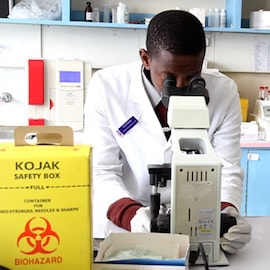On the Podcast: What’s next for the Clinton Giustra Enterprise Partnership? An Interview with CEO Mark Gunton
The Clinton Giustra Enterprise Partnership (CGEP) was established nearly a decade ago, and over the years, it has experimented with and replicated businesses that connect smallholder farmers and women entrepreneurs in emerging markets with companies that can move markets themselves. Along the way, the partnership has worked to scale up poverty-fighting distribution, supply chain and training center enterprises in Latin America, India and sub-Saharan Africa.
Created through a $100 million donation to the Clinton Foundation from Canadian mining billionaire Frank Giustra, CGEP is a nonprofit that’s not interested in nonprofit or CSR plays. Rather, it supports enterprises looking to create profits within four years, and reinvests the returns into other enterprises in its portfolio. In each deal, it looks for social returns, including long-term income for beneficiaries relative to the size of the investment, among other factors.
In the latest NextBillion Podcast, I chatted with Mark Gunton, who has served as CEO of the partnership since 2012. Before joining the Clinton Foundation, Gunton was managing director-Americas, Middle East and Africa for TNT Express. He also helped found the Northstar Alliance, a network of roadside clinics across Africa.
“We use enterprise models that are highly replicable. We research them, pilot them, launch, scale and oversee them,” Gunton said of CGEP. “We decided to take a market gap approach in that we create businesses that sit between poor communities and the formal economy.”
CGEP has looked to bridge those market gaps in the supply or distribution chains by developing partnerships between investee companies and large corporations, including Unilever.
“A small farmer in the middle of nowhere cannot start selling tomatoes to a supermarket chain without the aid of a business like (one of) ours that provides the training, provides the inputs and gets it to market,” Gunton says. “It’s the small farmer himself that does all that work, we’re just allowing him to access that market and release his potential.”
Gunton also talks about the partnership’s approach to scaling enterprises, some mistakes it made early on, and his concerns about how social entrepreneurship is practiced today. While he says he respects many social entrepreneurs, he’s concerned by their limitations when it comes to achieving scale and replicating models, especially when they’re led by a single, visionary social entrepreneur.
“We were given a very audacious goal: poverty alleviation at scale, which you can’t do by giving money to existing social entrepreneurs because everything’s been built around a single person. … Some social enterprises find it way too easy to fall back on donor income, rather than fix the commercial flaws in it, which then become very dependent on handouts and never get to scale.”
This is a pivotal time for CGEP. The Clinton Foundation has been the subject of intense scrutiny from the news media and politicians during this presidential campaign, and significant scrutiny has been directed at CGEP as well. Giustra recently announced that if Hillary Clinton wins the U.S. presidential election, CGEP will be spun off from the Clinton Foundation and managed independently. Gunton also discusses how the partnership might look and function differently after the election in this wide-ranging discussion.
Top image: Mark Gunton visits CGEP portfolio firm Chakipi, an inclusive distribution business in Peru, which empowers low-income women to become last-mile entrepreneurs in their communities through training, a broad basket of products, and microcredit. Image courtesy of the Clinton Foundation.
Homepage photo: Craig Piersma, via Flickr.
Scott Anderson is a contributing editor at NextBillion
- Categories
- Agriculture, Social Enterprise



